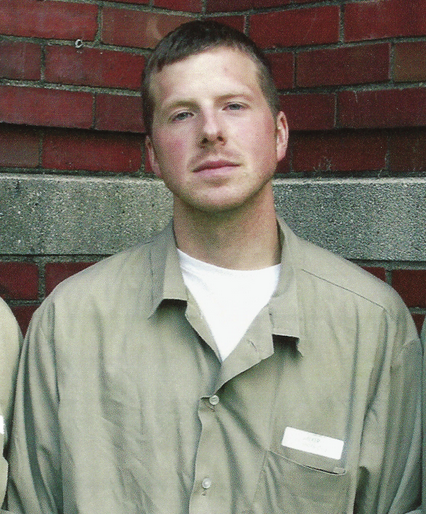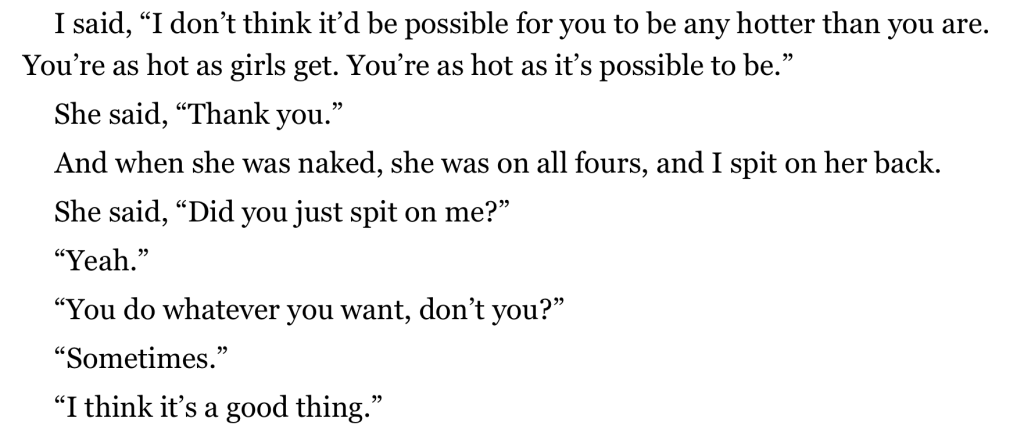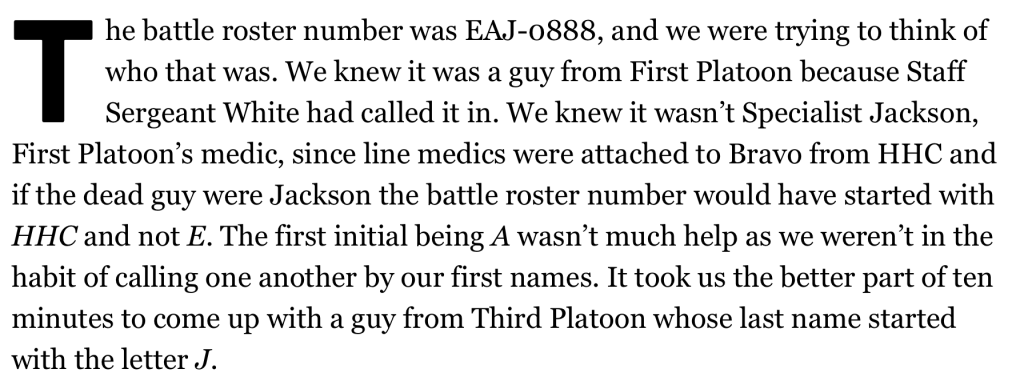The Russo Brothers loved this book so much they’re ditching superheroes for it. So what’s all the hype about??
Genre: War/Drama
Premise: A young man growing up in Cleveland decides to join the army, after which he suffers PTSD, leading to a string of bank robberies to feed his drug addiction.
About: Today’s book was a huge “out of nowhere” million dollar sale, highlighted by the fact that the author, who’s in prison for the crimes he writes about, couldn’t complete the sale for the movie rights because he ran out of his allotted prison phone minutes. He would need to wait a whole extra week to get it done. Meanwhile, the project became so hot that Avengers Infinity War directors Joe and Anthony Russo made Cherry their first post-Avengers directorial project.
Writer: Nico Walker
Details: 300 pages
I was cautiously excited to read this one. Excited because of the rags-to-riches backstory. Cautious because I know Hollywood gets so wet for these war books that they can’t see the forest through the trees. Case in point: Billy Lynn’s Long Halftime Walk. Hollywood LOOOOOVED that book. Couldn’t wait to turn it into a movie and win a billion awards. Except I read that book and it was easily one of the three worst books I’d read in my life. So I was hoping they hadn’t made the same mistake here.
The story follows the author, Nico, in 2003, as he attempts to figure out his life in Cleveland post high school, a life which seems to have no direction other than the love he has for his girlfriend, Emily. When finding a promising job proves difficult, Nico joins the army, and is shipped out for training soon after.
He’s eventually transferred to Iraq where he becomes a medic. His tour is one year, the majority of which is spent cleaning up human remains after IEDs blow up army vehicles. Nico quickly learns that this is war with all of the downsides and none of the glory. There are no soldier-on-soldier battles, just people getting blown up and shot in small skirmishes in the night, and the requisite clean-up afterwards.
Nico bides his time by thinking about Emily, calling her, e-mailing her, and seeing her during the few times he gets time off. Emily is not a fan of what Nico’s doing, and he soon begins to suspect she’s cheating on him. Since Emily is the only thing that keeps him going, he descends into a mental spiral of depression, knowing that if she is sleeping with other guys, there’s nothing he can do about it in Iraq.
When his tour is finally up, his worst fears are confirmed. Emily has been in numerous relationships while he was off in the army. The two break up, and Nico turns to booze and oxycotin, which eventually turns to oxycotin and heroin. He moves from woman to woman, but none of them make him happy the way Emily did.
Eventually, Emily reemerges and Nico gets her hooked on heroin. Every day is a hunt for the next score. When they run out of money, Nico has no choice but to start robbing banks so they can get their fix. When one of the banks publishes a camera shot that is as “clear as if I were sitting for an oil painting” Nico is arrested and sentenced to 11 years in prison. He won’t be released until 2023.
I can totally see why this author is getting attention. His style is raw, in your face, fearless. Most importantly, it’s truthful. One of the hardest things about writing yourself is that you’re always trying to come off as the good guy. Deep down you want people to like you – think you’re funny, cool, interesting, good. So you don’t write the bad things that you think or do. You’re afraid they’ll get in the way of the image you want to portray. The irony is that the bad parts are what make you human, and without them, you don’t seem real, you don’t seem flawed. The most powerful thing about this book is its lack of a filter.
The book also gives you something you can’t get anywhere else. And I think writers forget about this. They forget to ask, “What am I giving the reader that they can’t get with any other story, any other writer?” Because if you’re one of the 95% of writers who are rewriting movies we’ve already seen, why would I need to read your script? I’ve already seen it. Cherry gets extremely specific, especially when we’re in Iraq, and every page is filled with shit I never even thought about. I’m genuinely learning something new in every chapter. Here, after a dead body is called in, Nico and the rest of the crew try to figure out who it might be…
I’m not getting that kind of detail from the screenwriter who does his war research by renting Saving Private and Platoon.
Nico also wisely inserts an anchor into his story. When you’re writing one of these wandering narratives, it’s easy for the reader to feel lost. “Where is all of this headed?” is a common question. You allievaite this by adding an anchor, something to keep coming back to. This anchor grounds the story. The most common anchor used is a relationship. So, for Nico, it’s Emily. Whenever things start to get a little loose, we’ll call Emily, or we’ll e-mail Emily. They did the same thing in Forrest Gump with Jenny.
Nico even turbo-boosted this storyline because he inserted an element of dread into it. It wasn’t just, “Hey, it was nice to talk to Emily again!” There was an underlying sense that she wasn’t as committed to their relationship as he was. Maybe she had found someone else. Since we knew Emily was Nico’s world, we had to keep reading to find out if, indeed, Emily would leave him, or if it was going to be okay.
If the book has a weakness it’s that it’s too depressing. Depressing is fine if it’s earned. If, for example, Nico has this rosy outlook on life and then he experiences the carnage of war and it changes him – that makes sense. But Nico is a downer from the get-go. He’s never a happy guy. So there isn’t enough emotional variance throughout the book. We keep hitting that same “life sucks” beat over and over. Remember, guys – you need highs for the audience to be able to appreciate the lows, and vice versa.
As for the movie adaptation, I’m not sure how the Russos are going to approach it. The most interesting thing about the story is the bank robberies, but those robberies get the least amount of time in the story, as they’re mostly tacked on to the very end. They could focus on the war stuff, but I feel like we’ve seen a ton of Iraq war movies already. On the page this stuff sounds amazing. But I’m not sure it will look any different from the last mainstream Iraq flick. Or the one before that. Nico has such a pronounced voice that I fear this is one of those books that works best as a book, not a film. But we’ll see.
For those interested, this is a good companion piece to Hillbilly Elegy, a book that covers the same demographic, but through the prism of education rather than war. I’d say Elegy is better. But Cherry is still a solid piece of work.
[ ] What the hell did I just read?
[ ] wasn’t for me
[x] worth the read
[ ] impressive
[ ] genius
What I learned: Keep at it. Everything you write will be a struggle. Don’t give up. Nico wrote this book at the urging of a couple of guys working at a small publishing company. He didn’t think he could do it. He only wrote it because they believed in him. After three full years and dozens of rewrites, they gave the manuscript to one of the higher-ups at the company, and he said the writing wasn’t good enough to publish, and so Nico would have to rewrite the whole book over again and so he did. After they finished that version, one of the editors came in and made a few changes to the main character and Nico said, “What the fuck are you doing changing my story?” The editor said that when people read Nico’s version, they think the main character is a total asshole, but when they read this editor’s version, they think Nico is an asshole, but they kind of like him. So they went with the editor’s version.
What I learned 2: If you’re a really good structural writer who’s been told that your description, dialogue or characters are stiff, read this book. It really shows you what can happen if you just let go and write. It literally feels like the words are going straight from the writer’s brain to the page. There’s no, “I have to make this sentence perfect,” filter.








